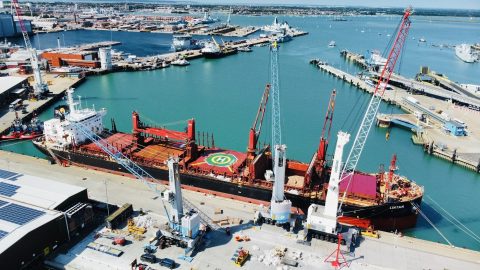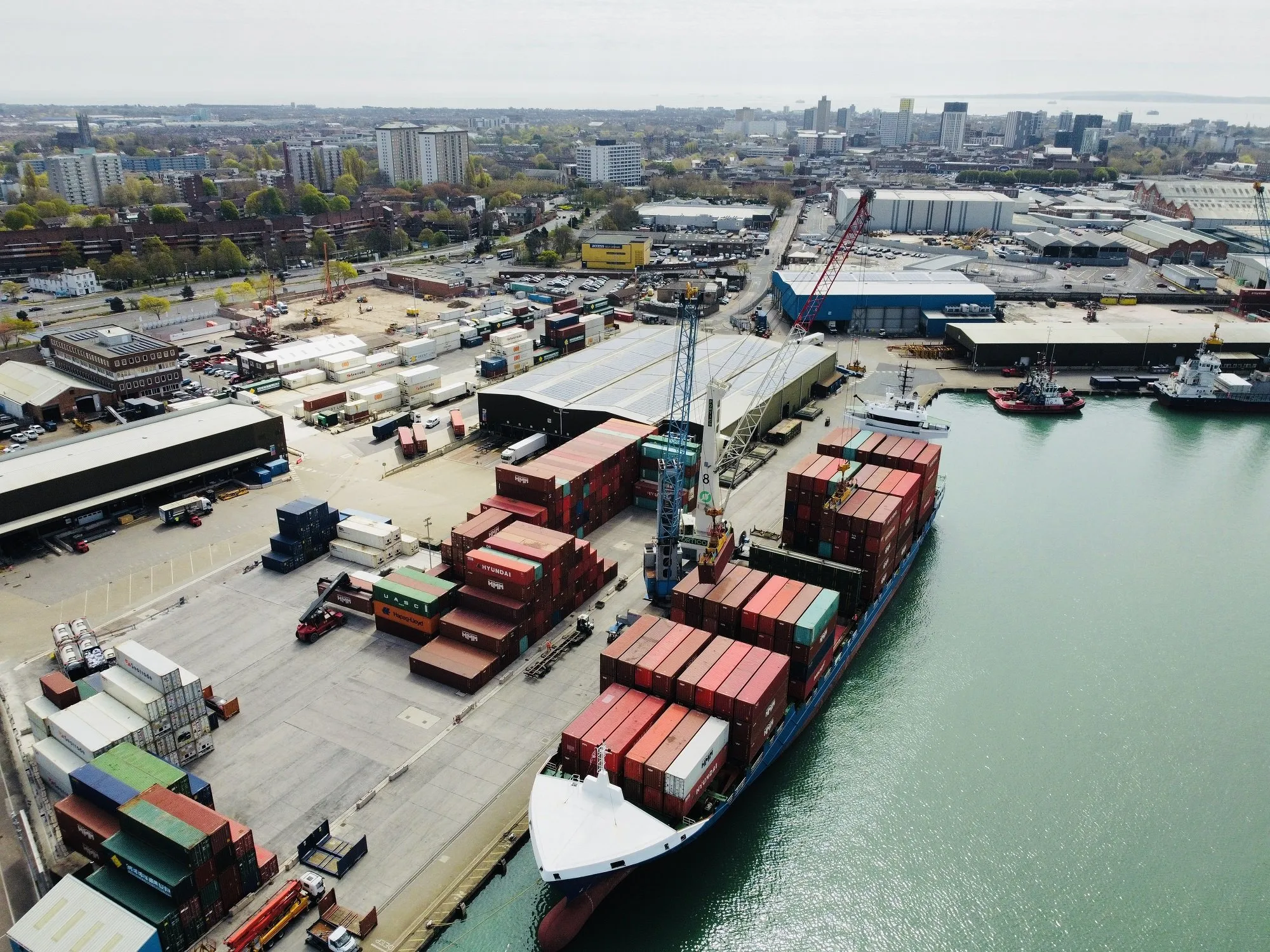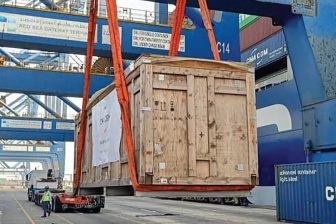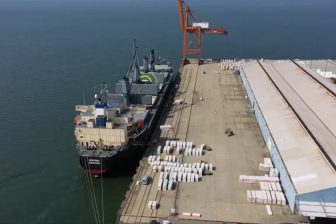
Portico shuffles structure to benefit from the modal shift
Portico, Portsmouth’s international cargo terminal, has welcomed Camila Carlbom Flinn and Justin Atkin to its board as the company shuffled its governance structure. The company aims to leverage the experience of the new additions to take advantage of the change that shipping is going through.
Speaking of the appointments, Steve Williams, managing director of Portico, said that both bring “wealth of industry experience and will provide insight to support ambitions” of the company as it further grows and develops.
The company is also fully invested in diversifying its operations. So far, it has seen positive results from these efforts as, despite the challenges of the pandemic, Portico has recorded a 21 percent increase in vehicle movements at the international cargo terminal since 2018. Investment in automation has also reduced the time needed to process vehicles arriving on-site.
Additionally, in November last year, Portico demonstrated this versatility by handling four different types of cargo over one week. This included paper, grain, project cargo for HS2 and containers across their two deep water quays, and by utilising berths at neighbouring Portsmouth International Port.
The terminal also had an important role to play in helping to solve the empty container crisis, with 10,000 TEUs moved through Portsmouth to be consolidated and sent back to where they were needed. Long-term contracts with customers such as Geest Line and Africa Express Lines have also helped the business plan for the future.
“Shipping is going through a significant change and it’s vital to make sure we’re in the best possible position to accommodate the way trade is handled. We expect to see more opportunities for shortsea services, as this modal shift means goods are moved differently,” Williams said.
Portico embracing the modal shift
Across the freight industry, the modal shift trend has seen businesses look at their supply chains, to see how they can make them quicker, more resilient, and even greener. Matt Green, key account manager at Portico, explains what this means for the shipping industry and businesses.
“Across the freight industry, there has been much talk of ‘modal shift’. In essence, modal shift means a change from one form of transportation to another and is an important element of the discussion around creating sustainable, resilient supply chains. For example, at Portico, some of the services we now offer due to modal shift shave a week off delivery times and can take multiple lorries off the road,” Green says.

Over the past few decades, containerisation of cargo has changed the face of the shipping. Container shipping lines have moved rapidly to order even larger vessels to take advantage of this trend. “Today, there are ships operating that have a capacity of just under 24,000 TEUs (twenty-foot equivalent units). This had put smaller regional terminals, like ours here in Portsmouth, at a disadvantage,” Green says.
However, over the past few years, a countervailing trend has begun to emerge, with smaller ships, regional ports, and innovative ways of using existing services coming together to increase resilience, speed up processing and have less impact on the environment. These can all be grouped together under the banner of ‘modal shift’.
In the shipping industry, this shift away from conventional thinking has come from a combination of congestion at larger UK ports, HGV driver shortages and changes to supply chains because of Brexit, all of which have had an impact on businesses.
In practice, there has been a resurgence in ‘short sea’ and ‘feeder’ services between major continental ports and ports across the British Isles. These allow major shipping lines to offload containers more quickly, which can be swiftly transferred to smaller vessels and onward to regional ports in the UK. These ports are closer to the cargo’s end destination, increasing the resilience of supply chains.
The containers can then be cleared by customs whilst at sea, and as they are going to a regional port, the speed of processing once they arrive is rapid. For UK exporters, it means you can drop goods at a terminal that will be delivered directly to the heart of continental Europe, and no more delays from road congestion on the channel short straits. Portico already have a short-sea service in place, with a weekly departure to the Port of Antwerp.
Addressing the issues
Portino is entering an exciting new phase in its development according to the newly appointed Camilla Carlbom Flinn, Portico board chair, and it is ideally positioned to service a broader client base and take advantage of increased trade both from both a Continental and global perspective.
“The growth of the customs agency and inclusion in the Solent Freeport are exciting developments that will make a positive impact both within the Port and across the region. I very much look forward to joining the team and contributing to this journey,” Carlbom Flinn adds.
Justin Atkin, Portico board non executive director noted that the business has already made huge progress in adapting to meet changing market demand, accommodating new commodities and attracting new customers, whilst also addressing the changing needs of existing clients.
“With modern handling equipment, deep water access and excellent road connectivity, Portico provide shippers with a real choice when selecting port facilities. Although the sector faces major challenges around decarbonisation, digitalisation, connectivity and skills, the Board are aligned in proactively addressing these issues and I’m really looking forward to making a positive contribution”.
With the new additions Portico’s reorganised board includes non executive directors, Mike Sellers, Chris Ward, Cllr Gerald Vernon-Jackson, Cllr Simon Bosher, independent non executive directors, Justin Atkin and Camilla Carlbom Flinn, who is also Portico Chair. The board also includes executive directors, Steve Williams, Richard Lewis and Mark Webb who is also the chief financial officer.



